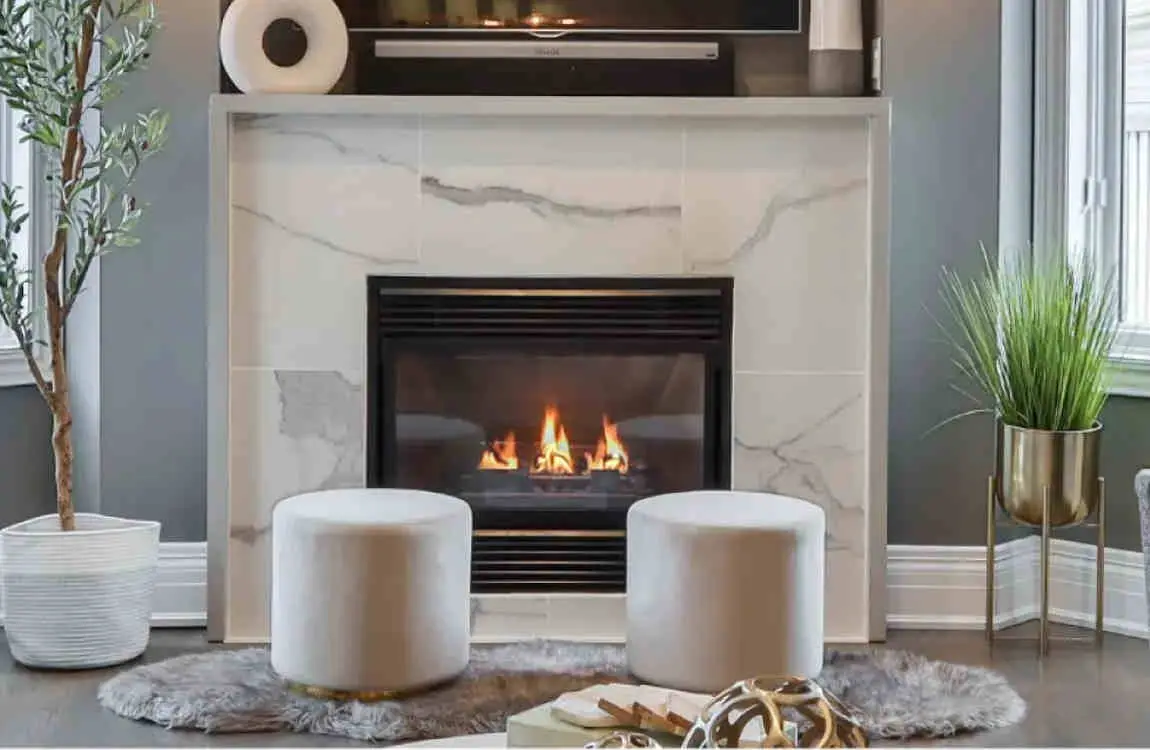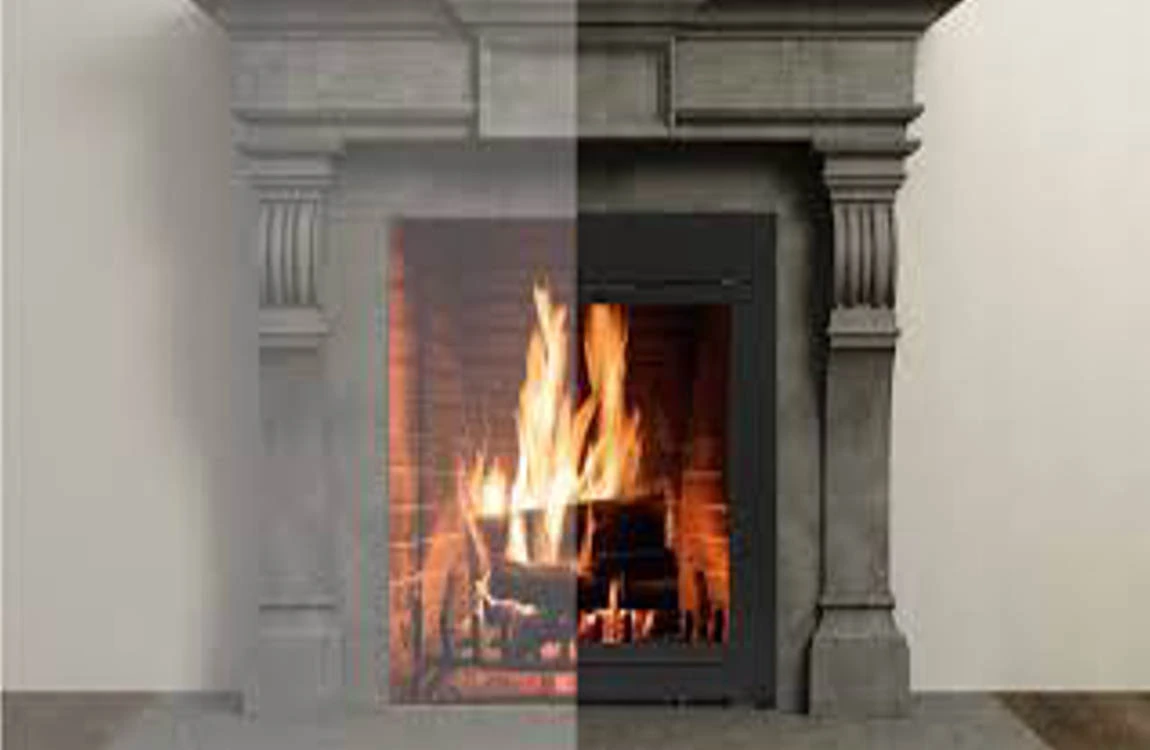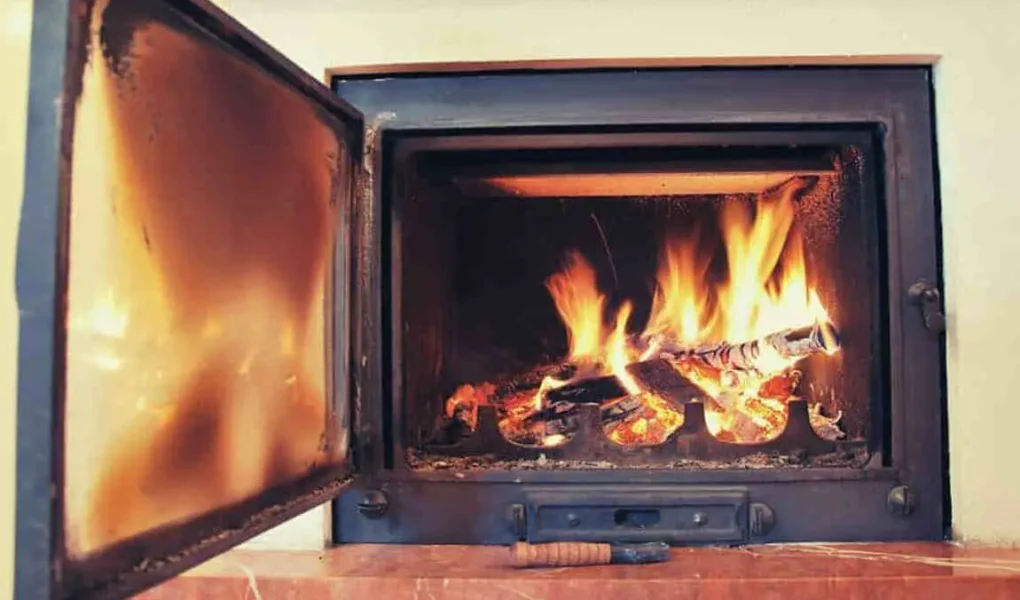Glass doors on fireplaces aren’t just a stylish addition — they play a crucial role in how your fireplace performs and keeps your home safe. If you’re wondering when to close glass doors on a fireplace, you’re not alone. Many homeowners struggle to find the right balance between safety, warmth, and efficiency.
From what they are and why timing matters, to seasonal tips and maintenance advice, this article will help you get the most from your fireplace while keeping your home cozy and safe.
What Are Fireplace Glass Doors?

Definition and Types of Fireplace Glass Doors
Fireplace glass doors are protective panels that cover the opening of your fireplace. They can be made of transparent or tempered glass and are usually framed in metal. Their main job is to create a barrier between the fire inside and the rest of your home.
There are generally two main types:
- Single glass doors: These swing open like regular doors.
- Double glass doors: These consist of two panels that open from the center.
Materials and Design Options
The most common glass used is tempered or ceramic glass because it can withstand high heat without cracking. Frames often come in steel, brass, or black iron finishes, which match various home decor styles.
Design-wise, options range from simple and modern to ornate and traditional, so you can find doors that complement your fireplace style.
Benefits: Safety, Energy Efficiency, Aesthetics, and Protection from Sparks
Glass doors aren’t just for looks. Here’s what they offer:
- Safety: They block sparks and embers from jumping out, protecting your floors and furniture.
- Energy Efficiency: Doors help control airflow, reducing heat loss when the fire dies down.
- Aesthetics: They add a polished, finished look to your fireplace.
- Protection: Keep pets and children safe by creating a barrier.
Why Timing Matters: The Importance of Knowing When to Close Glass Doors on a Fireplace

How Glass Doors Affect Airflow and Combustion
Airflow is the heart of any fire. Glass doors regulate how much air moves into the fireplace. Too little airflow can smother the fire, while too much can waste heat.
You may also read (what are the most popular diy home projects in 2025).
Impact on Fire Performance and Heat Output
When glass doors are open, fresh air fuels the fire, making it burn hotter and brighter. Closing them at the right time helps trap radiant heat inside your home, improving efficiency.
Safety Considerations
Closing the doors too early can cause smoke buildup or dangerous gases to enter your living space. Understanding when to close them keeps both your family and home safe.
Energy Efficiency Benefits from Proper Closing
Proper timing lets you maximize heat retention while minimizing heat loss through the chimney. Closing glass doors when the fire’s dying down prevents warm indoor air from escaping.
When to Keep Fireplace Glass Doors Open
During Fire Startup to Allow Proper Air Flow
When lighting a fire, you want plenty of oxygen rushing in. Keeping the doors open helps the fire catch quickly and burn cleanly.
When Adding Wood or Stoking the Fire
Opening doors while tending the fire prevents smoke from spilling into your room and lets you adjust flames easily.
To Ensure Combustion Gases Exit Properly
Early in the burn, gases need a clear path out. Open doors support this flow, avoiding smoke problems.
To Maintain Air Circulation as Fire Establishes
As the fire grows, air circulation is key. Open doors to avoid restricting airflow too soon.
When to Close Fireplace Glass Doors
After the Fire Is Well-Established and Burning Steadily
Once the fire is stable and producing good heat, closing the glass doors helps trap warmth inside your home.
When the Fire Is Dying Down or Embers Remain
Closing doors during this phase prevents heat from escaping up the chimney and keeps embers safely contained.
Overnight or When the Fireplace Is Not Actively Used
For safety and energy savings, close the doors when you’re done with the fire or before going to bed.
To Prevent Heat Loss When the Fireplace Damper Is Closed
If your damper is shut, glass doors act as a secondary barrier to stop drafts and keep your home warm.
Seasonal Considerations: Adjusting Glass Door Use Throughout the Year
Winter Months: Maximizing Heat Retention
In cold weather, closing glass doors helps hold heat in your living space, reducing your heating bill.
Summer Months: Preventing Drafts and Debris Entry
Even when not using your fireplace, closing doors blocks cold drafts and keeps dust or critters out.
Spring and Fall: Balancing Ventilation and Heat Conservation
During milder weather, you might leave doors partially open for airflow while still enjoying some warmth.
How Glass Doors Affect Fireplace Efficiency and Home Heating
Comparing Heat Retention With Doors Open vs. Closed
| Situation | Heat Retention | Airflow Control | Safety Aspect |
|---|---|---|---|
| Doors Open | Lower – heat escapes | High airflow | Sparks may escape |
| Doors Closed (Fire strong) | Higher – heat trapped | Controlled airflow | Sparks contained |
| Doors Closed (Fire out) | Prevents drafts | Minimal airflow | Protects home from cold |
Role in Reducing Cold Drafts and Energy Loss
Glass doors close off the chimney opening, preventing cold air from rushing in when the fire is out.
Effect on Draft Control and Smoke Behavior
When closed properly, doors help maintain a balanced draft, ensuring smoke rises smoothly up the chimney.
Common Mistakes Homeowners Make with Fireplace Glass Doors
Closing Doors Too Early and Smothering the Fire
Shutting doors before the fire is ready can cause smoke to fill the room and extinguish flames.
Keeping Doors Open During Cold Nights
Leaving doors open when the fireplace is out invites chilly drafts, wasting energy.
Not Cleaning or Maintaining Glass Doors Regularly
Dirty glass reduces visibility and can become a safety hazard.
Ignoring Manufacturer Instructions
Every fireplace and door set is unique; ignoring guidelines can lead to damage or unsafe conditions.
Safety Tips for Using Fireplace Glass Doors
Regular Inspection for Cracks or Damage
Check your glass doors often to catch chips or cracks early.
Handling Glass Doors Carefully to Avoid Breakage
Open and close doors gently to extend their lifespan.
Using Fireplace Tools Safely When Glass Doors Are Open
Always use proper tools to tend the fire safely.
Installing Protective Screens if Needed
For extra safety, consider a mesh screen behind glass doors, especially if you have kids or pets.
Maintenance and Cleaning of Fireplace Glass Doors
Recommended Cleaning Frequency and Methods
Clean your glass doors monthly during heavy use, or at least seasonally.
Products Safe for Glass and Framing Materials
Use non-abrasive cleaners designed for fireplace glass. Avoid harsh chemicals that can damage frames.
Signs of Wear and When to Replace Hardware or Glass
Watch for loose hinges, broken seals, or discoloration. Replace parts to keep doors functioning safely.
Expert Tips on Optimizing Fireplace Use with Glass Doors
Coordinating Glass Doors with Dampers and Chimney Maintenance
Ensure your damper and chimney are clean and working well to complement the glass door use.
Using Glass Doors to Control Airflow for Better Combustion
Adjust door positioning to manage oxygen flow and fire intensity.
Enhancing Fireplace Aesthetics While Maintaining Safety
Choose door designs that match your home’s style but don’t sacrifice safety features.
Conclusion
Knowing when to close glass doors on a fireplace can make a big difference in safety, warmth, and efficiency. Remember to keep doors open during fire startup and tending, then close them once flames are stable or when the fire dies down.
Regular cleaning and maintenance keep your doors looking great and working safely. By following these tips, you’ll enjoy a cozy, beautiful fireplace that heats your home effectively and safely.
You may also read (laminate flooring expansion what homeowners need to know).


